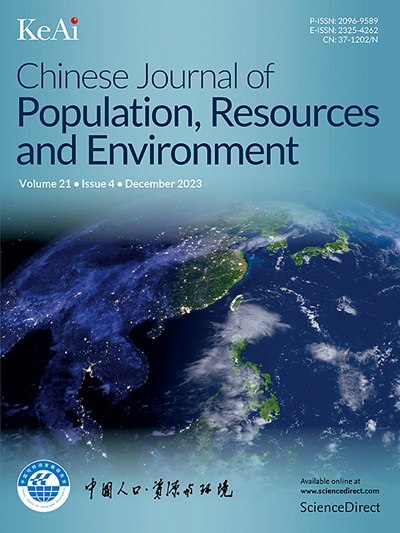Impact of banks’ ESG disclosure assurance on borrowers’ ESG performance: Evidence from China
IF 4.8
4区 环境科学与生态学
Q2 ENVIRONMENTAL STUDIES
Chinese Journal of Population Resources and Environment
Pub Date : 2025-09-01
DOI:10.1016/j.cjpre.2025.07.005
引用次数: 0
Abstract
This study examines the impact of banks’ environmental, social, and governance (ESG) disclosure assurance (BEDA) on borrowing enterprises’ ESG performance to investigate China’s bank-enterprise loan relationships. Using manually collected bank loan relationship data and financial data of Chinese listed companies from 2010 to 2021, our findings reveal that BEDA significantly enhances borrowers’ ESG performance. Moreover, this effect is more pronounced when banks have a higher information demand, better internal controls, and share auditors with borrowers; when borrowers operate in environmentally sensitive industries, and in the period following the Paris Agreement signing. Among the individual ESG subcategories, the impact of BEDA on borrowers’ ESG performance is primarily reflected in environmental (E) and social (S) considerations. Finally, we do not find that BEDA significantly suppresses banks’ greenwashing. These findings indicate that BEDA has an informational or advisory influence on banks’ ESG governance rather than a supervisory role at this stage of sustainability reporting development. This study suggests that policymakers should guide BEDA’s evolution from a passive information tool to a proactive governance tool, facilitating enterprises in achieving substantive ESG transformations while reducing systemic greenwashing risks.
银行ESG披露保证对借款人ESG绩效的影响:来自中国的证据
本研究考察了银行的环境、社会和治理(ESG)披露保证(BEDA)对借款企业ESG绩效的影响,以考察中国银企贷款关系。通过人工采集2010 - 2021年中国上市公司的银行贷款关系数据和财务数据,我们发现BEDA显著提升了借款人的ESG绩效。此外,当银行具有更高的信息需求、更好的内部控制和与借款人共享审计师时,这种效应更为明显;当借款人在环境敏感行业经营时,以及在《巴黎协定》签署后的时期。在各个ESG子类别中,BEDA对借款人ESG绩效的影响主要反映在环境(E)和社会(S)方面。最后,我们没有发现BEDA显著抑制银行的“漂绿”行为。这些发现表明,在可持续发展报告发展的这个阶段,BEDA对银行的ESG治理具有信息或咨询作用,而不是监督作用。本研究建议政策制定者应引导BEDA从被动的信息工具向主动的治理工具演变,促进企业实现实质性的ESG转型,同时降低系统性的“漂绿”风险。
本文章由计算机程序翻译,如有差异,请以英文原文为准。
求助全文
约1分钟内获得全文
求助全文
来源期刊

Chinese Journal of Population Resources and Environment
ENVIRONMENTAL STUDIES-
CiteScore
4.30
自引率
1.10%
发文量
791
审稿时长
79 days
期刊介绍:
The Chinese Journal of Population, Resources and Environment (CJPRE) is a peer-reviewed international academic journal that publishes original research in the fields of economic, population, resource, and environment studies as they relate to sustainable development. The journal aims to address and evaluate theoretical frameworks, capability building initiatives, strategic goals, ethical values, empirical research, methodologies, and techniques in the field. CJPRE began publication in 1992 and is sponsored by the Chinese Society for Sustainable Development (CSSD), the Research Center for Sustainable Development of Shandong Province, the Administrative Center for China's Agenda 21 (ACCA21), and Shandong Normal University. The Chinese title of the journal was inscribed by the former Chinese leader, Mr. Deng Xiaoping. Initially focused on China's advances in sustainable development, CJPRE now also highlights global developments from both developed and developing countries.
 求助内容:
求助内容: 应助结果提醒方式:
应助结果提醒方式:


